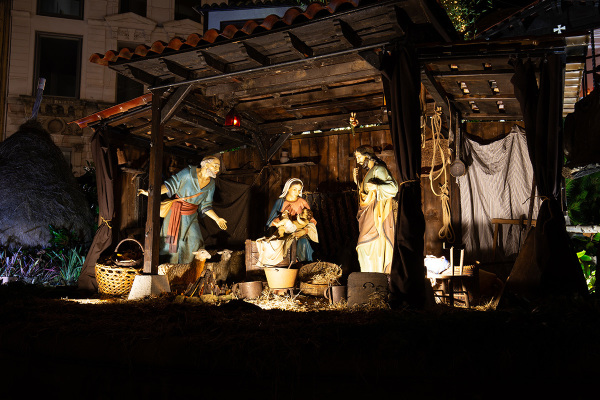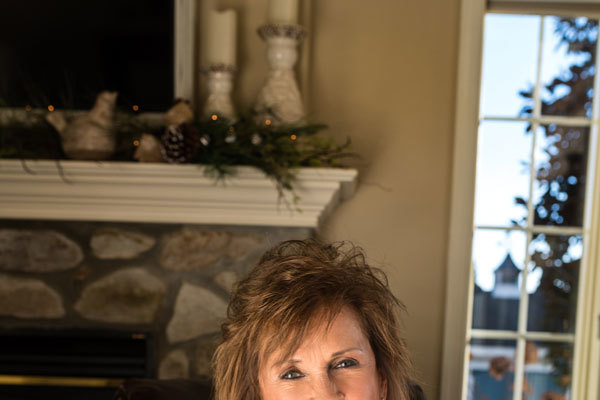Fuller Seminary President Responds to Concerns About Student-Led LGBT Group on Campus
Mark Labberton, president of Fuller Theological Seminary in Pasadena, Calif., announced this week that the evangelical seminary's willingness to allow OneTable, an LGBTQ student-led organization, to hold monthly meetings and sponsor campus events does not conflict with the institution's policies and Christian moral beliefs and teachings.
In a statement shared with The Christian Post, Labberton said the administration welcomes "the opportunity to engage over vigorous issues of debate within the church and within culture," and understands that their decision to allow an LGBT student organization on campus leaves the seminary "vulnerable to critique from a broad spectrum."
OneTable, the LGBTQ student organization that was founded in 2012 by Chelsea McInturff and Samantha Curley, hosts monthly table fellowship meals and sponsors campus events, including film screenings, speakers and panels, and provides "safe spaces for students and faculty to engage in healthy and constructive conversations together," according to the OneTable website.
Having received thoughtful questions about the seminary's moral stance on issues pertaining to sexuality, specifically same-sex marriage and the purpose behind the LGBT student organization, Labberton said the seminary will continue to uphold its belief that premarital, extramarital and homosexual conduct are inconsistent with biblical teachings.
"Fuller's position on same-sex marriage and behavior, reflective of our evangelical tradition's reliance on the scriptures, affirms that every student, faculty member, administrator, and staff person at Fuller is expected to abide by the Community Standards that 'premarital, extramarital, and homosexual forms of explicit sexual conduct [are] inconsistent with the teaching of Scripture.' This position is clear," Labberton emphasized.
He added that OneTable is one among 24 student-led groups at Fuller, and provides a "safe place to discuss issues related to sexuality and gender – issues that are vitally important, personal, and fraught with debate that is frequently divisive and contentious, not least in an evangelical context."
According to Labberton, OneTable isn't an advocacy group and the LGBT organization isn't going to influence the seminary's policies.
"[M]any evangelical and other churches are being asked questions related to sexuality by their congregations," he commented. "As our students at Fuller train to become pastors and church leaders and for other vocations, issues about sexuality will likely be asked and discussed with some regularity. Our goal at Fuller Seminary is to help prepare our students to be able to minister lovingly, biblically, and faithfully on this and many other issues as well."
Labberton noted that Fuller has always taught and discussed issues pertaining to sexuality, marriage and family, and will continue to do so in the classroom and in campuswide workshops.
Nick Palacios, president of OneTable, and McInturff and Curley, OneTable's founding presidents, told CP on Thursday they believe that having access to the organization on campus will serve to "encourage, equip, and empower seminary students to engage in dialogue with the LGBT community, regardless of their personal or theological convictions."
The OneTable presidents explained, "Jesus teaches us what relational ministry looks like, and we hope that OneTable is helping students to be more relational in how they think about their 'other,' in this case, the LGBT community. We do this by giving students the opportunity to share a meal with people who are different from them, while providing a safe space for people to listen, learn and ask questions."
Curley added that OneTable will "help students think about faith and sexuality from a broader perspective, one that includes each of us, not only the LGBT community."
She continued, "We are all embodied, sexual beings and the blessing of the LGBT community and a group like OneTable is that the entire seminary community has the opportunity to think more theologically about their own sexuality, however they would define it."
Thus far, the students said the Fuller community has responded positively toward OneTable, and reiterated that the purpose for having the organization at the seminary is to ignite a dialogue and understanding, not to change the seminary's policies or advance any political agenda.
"We've encountered people from various beliefs and convictions regarding faith and sexuality, and my sense is that the community seems relieved to have a safe space to participate in this dialogue – to listen, to learn, and to meet people from different backgrounds and beliefs," Curley said. "Certainly, there is a lot of fear and skepticism around even having the dialogue, but we strive to be a place where everyone's voice is welcome and necessary. The more people hear and trust this posture and approach, the more I hope they will join the conversation."
The OneTable presidents also said they don't believe the student-led organization runs counter to Christian doctrine, when asked this question by CP, and maintained that OneTable is "very much in line with Christian doctrine."
"We also believe our approach is in line with Jesus' relational ministry and a Gospel that models what it looks like to sweep from the margins," they said.
Even though Palacios, McInturff and Curley believe OneTable is going to be a success at Fuller, they don't believe they can prescribe that all Christian institutions should follow their lead.
"We've found a space and an approach that is working for our community and I hope other Christian communities take the time to discern what is best for them," Curley said. "This is a conversation and a community that is not going away, so I believe seminaries and universities must address the dialogue with faith, hope and love. But what that looks like is a question specific and contextualized for each community."





















